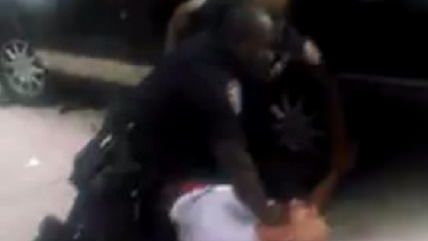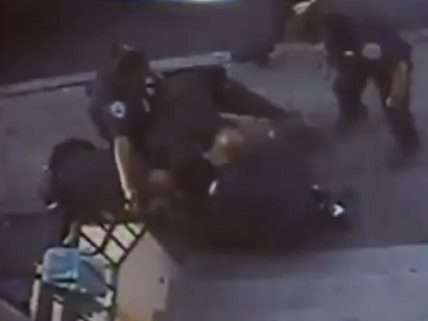What is Wrong with the New York Times? Cops Not Bothering Minorities a Possible 'Civil Rights Violation'


A few weeks ago, cops with the New York Police Department unilaterally pulled back on enforcing petty laws, making arrests only when "necessary." Citations for things like traffic and drug offenses plummeted. The violent crime rate did not see a concurrent spike. New York City is not slipping into chaos.
And as a matter of basic logic, because cops are no longer interacting with residents in poor and marginalized communities over petty laws that often affect those communities disproportionately, there are bound to be fewer instances of the use of excessive force by cops. In the aftermath of Ferguson, some attention was paid into the way police departments in the St. Louis area treated their jurisdictions like nothing more than revenue streams.
Except for the admittedly not insignificant problem of security forces dismissing the authority of the civilian leadership, there's a lot of good coming out of this. We don't know how many people weren't subjected to the indignity of an unnecessary police interaction because of this "work stoppage." But by virtue of there being fewer police interactions over non-violent crimes and fewer "unnecessary" arrests, we can surmise there have been fewer civil rights violations, fewer unconstitutional policing. And yet, The New York Times still can't get over that cops would dare not enforce all the laws imposed on poor and marginalized communities. The editorial board is calling for the mayor to start firing police commanders until unnecessary arrests and enforcement of petty laws goes up. And they want him to even more:
He should invite the Justice Department to determine if the police are guilty of civil rights violations in withdrawing policing from minority communities.
That's right. The New York Times believes when cops refuse to enforce petty laws and make unnecessary arrests in minority communities, that's a civil rights violation. If that isn't whitesplaining qua whitesplaining I don't know what is. The Times couldn't be more wrong on this issue and the editorial board's insistence to keep harping on the "injustice" of police officers limiting often tense interactions over inherently non-violent behavior in poor and marginalized, largely minority, communities borders on the delusional, and is certainly reckless.


Show Comments (136)